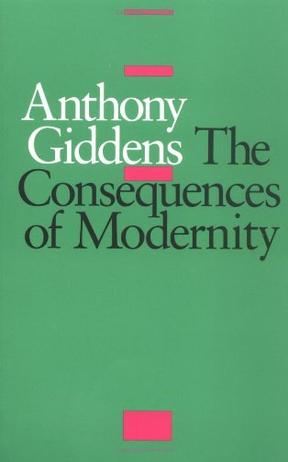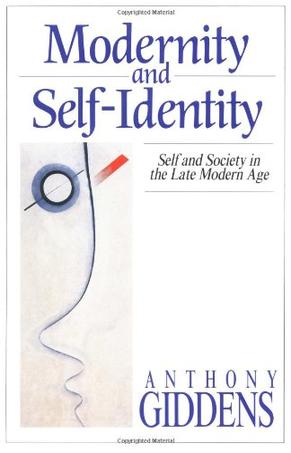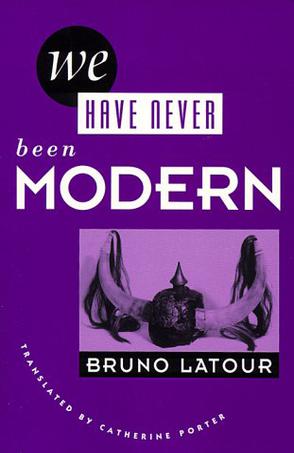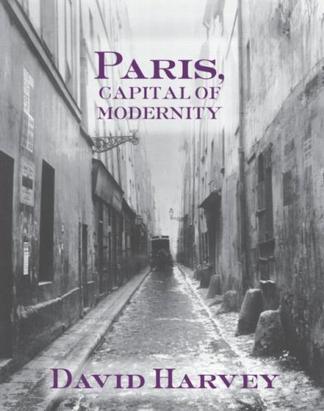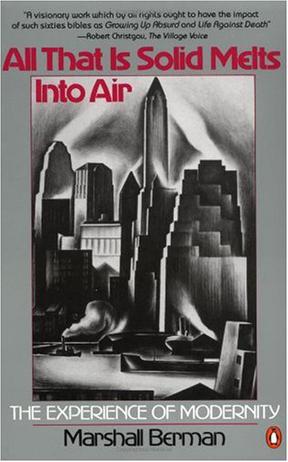欢迎来到相识电子书!
标签:modernity
-
The Consequences of Modernity
In this major theoretical statement, the author offers a new and provoctive interpretation of institutional transformations associated with modernity. What is modernity? The author suggests, "As a first approximation, let us simply say the following: 'modernity' refers to modes of social life or organization which emerged in Europe from about the seventeenth century onwards and which subsequently became more or less worldwide in their influence." We do not as yet, the author argues, live in a post-modern world. The distinctive characteristics of our major social institutions in the closing years of the twentieth century suggest that, rather than entering into a period of post-modernity, we are moving into a period of "high modernity" in which the consequences of modernity are becoming more radicalized and universalized than before. A post-modern social universe may eventualy come into being, but this as yet lies on the other side of the forms of social and cultural organization that currently dominate world history. In developing a fresh characterization of the nature of modernity, the author concentrates on the themes of "security versus danger and o "trust versus risk. Modernity is a double-edged phenomenon. The development of modern social institutions has created vastly greater opportunities for human beings to enjoy a secure and rewarding existencethan in any type of pre-modern system. But modernity also has a somber side that has become very important in the present century, such as the frequently degrading nature of modern industrial work, the growth of totalitarianism, the threat of environmentsal destruction, and the alrming development of military power and weaponry. The book builds upon the author's pevious theoretical writings and will be of great interest to those who have followed his work through the years. However, this book covers issues the author has not previously analyzed and extends the scope of his work into areas of pressing practical concern. -
Modernity and Self-Identity
Modernity differs from all preceding forms of social order because of its dynamism, its deep undercutting of traditional habits and customs, and its global impact. It also radicallly alters the general nature of daily life and the most personal aspects of human activity. In fact, one of the most distinctive features of modernity is the increasing interconnection between globalizing influences and personal dispositions. The author analyzes the nature of this interconnection and provides a conceptual vocabulary for it, in the process providing a major rethinking of the nature of modernity and a reworking of basic premises of sociological analysis. Building on the ideas set out in the authors The Consequences of Modernity, this book focuses on the self and the emergence of new mechanisms of self-identity that are shaped by--yet also shape--the institutions of modernity. The author argues that the self is not a passive entity, determined by external influences. Rather, in forging their self-identities, no matter how local their contexts of action, individuals contribute to and directly promote social influences that are global in their consequences and implications. The author sketches the contours of the he calls "high modernity"--the world of our day--and considers its ramifications for the self and self-identity. In this context, he analyzes the meaning to the self of such concepts as trust, fate, risk, and security and goes on the examine the "sequestration of experience," the process by which high modernity separates day-to-day social life from a variety of experiences and broad issues of morality. The author demonstrates how personal meaninglessness--the feeling that life has nothing worthwhile to offer--becomes a fundamental psychic problem in circumstances of high modernity. The book concludes with a discussion of "life politics," a politics of selfactualization operating on both the individual and collective levels. -
We Have Never Been Modern
With the rise of science, we moderns believe, the world changed irrevocably, separating us forever from our primitive, premodern ancestors. But if we were to let go of this fond conviction, Bruno Latour asks, what would the world look like? His book, an anthropology of science, shows us how much of modernity is actually a matter of faith. What does it mean to be modern? What difference does the scientific method make? The difference, Latour explains, is in our careful distinctions between nature and society, between human and thing, distinctions that our benighted ancestors, in their world of alchemy, astrology, and phrenology, never made. But alongside this purifying practice that defines modernity, there exists another seemingly contrary one: the construction of systems that mix politics, science, technology, and nature. The ozone debate is such a hybrid, in Latour's analysis, as are global warming, deforestation, even the idea of black holes. As these hybrids proliferate, the prospect of keeping nature and culture in their separate mental chambers becomes overwhelming--and rather than try, Latour suggests, we should rethink our distinctions, rethink the definition and constitution of modernity itself. His book offers a new explanation of science that finally recognizes the connections between nature and culture--and so, between our culture and others, past and present. Nothing short of a reworking of our mental landscape. "We Have Never Been Modern" blurs the boundaries among science, the humanities, and the social sciences to enhance understanding on all sides. A summation of the work of one of the most influential and provocative interpreters of science, it aims at saving what is good and valuable in modernity and replacing the rest with a broader, fairer, and finer sense of possibility. -
Modernity and Self-Identity
THIS MAJOR STUDY DEVELOPS A NEW ACCOUNT OF MODERNITY AND ITS RELATION TO THE SELF. BUILDING UPON THE IDEAS SET OUT IN THE CONSEQUENCES OF MODERNITY, GIDDENS ARGUES THAT 'HIGH' OR 'LATE' MODERNITY IS A POST TRADITIONAL ORDER CHARACTERISED BY A DEVELOPED INSTITUTIONAL REFLEXIVITY. IN THE CURRENT PERIOD, THE GLOBALISING TENDENCIES OF MODERN INSTITUTIONS ARE ACCOMPANIED BY A TRANSFORMATION OF DAY-TO-DAY SOCIAL LIFE HAVING PROFOUND IMPLICATIONS FOR PERSONAL ACTIVITIES. THE SELF BECOMES A 'REFLEXIVE PROJECT', SUSTAINED THROUGH A REVISABLE NARRATIVE OF SELF IDENTITY. THE REFLEXIVE PROJECT OF THE SELF, THE AUTHOR SEEKS TO SHOW, IS A FORM OF CONTROL OR MASTERY WHICH PARALLELS THE OVERALL ORIENTATION OF MODERN INSTITUTIONS TOWARDS 'COLONISING THE FUTURE'. YET IT ALSO HELPS PROMOTE TENDENCIES WHICH PLACE THAT ORIENTATION RADICALLY IN QUESTION - AND WHICH PROVIDE THE SUBSTANCE OF A NEW POLITICAL AGENDA FOR LATE MODERNITY. IN THIS BOOK GIDDENS CONCERNS HIMSELF WITH THEMES HE HAS OFTEN BEEN ACCUSED OF UNDULY NEGLECTING, INCLUDING ESPECIALLY THE PSYCHOLOGY OF SELF AND SELF-IDENTITY. THE VOLUMES ARE A DECISIVE STEP IN THE DEVELOPMENT OF HIS THINKING, AND WILL BE ESSENTIAL READING FOR STUDENTS AND PROFESSIONALS IN THE AREAS OF SOCIAL AND POLITICAL THEORY, SOCIOLOGY, HUMAN GEOGRAPHY AND SOCIAL PSYCHOLOGY. -
Paris, Capital of Modernity
Collecting David Harvey's finest work on Paris during the second empire, "Paris, The Capital of Modernity" offers brilliant insights ranging from the birth of consumerist spectacle on the Parisian boulevards, the creative visions of Balzac, Baudelaire and Zola, and the reactionary cultural politics of the bombastic Sacre Couer. Stunning in scope and form, this is a long-awaited essential collection of David Harvey's magnificent writing on 19th century Paris. -
All That Is Solid Melts into Air
Marshall Berman's "All That Is Solid Melts Into Air" is widely acclaimed as one of the greatest books on modernity. A kaleidoscopic journey into the experiences of modernization, the dizzying social changes that swept millions of people into the capitalist world, it dexterously interweaves an exploration of modernism in art, literature, and architecture. --This text refers to an out of print or unavailable edition of this title.
热门标签
下载排行榜
- 1 梦的解析:最佳译本
- 2 李鸿章全传
- 3 淡定的智慧
- 4 心理操控术
- 5 哈佛口才课
- 6 俗世奇人
- 7 日瓦戈医生
- 8 笑死你的逻辑学
- 9 历史老师没教过的历史
- 10 1分钟和陌生人成为朋友


